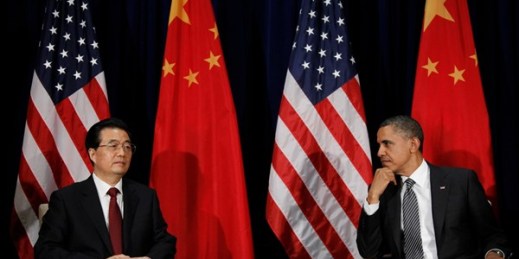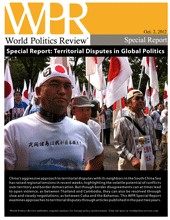
Editor’s note: The following article is one of 30 that we’ve selected from our archives to celebrate World Politics Review’s 15th anniversary. You can find the full collection here. At their conventions last month, both the Republican and Democratic parties declared that the United States is not in decline. The very fact that they felt compelled to deny such a claim, however, reveals the degree to which the issue has become part of the domestic political debate over America’s role in the world. Republican nominee Mitt Romney has cited the high rate of unemployment (above 8 percent) and slow economic growth […]





